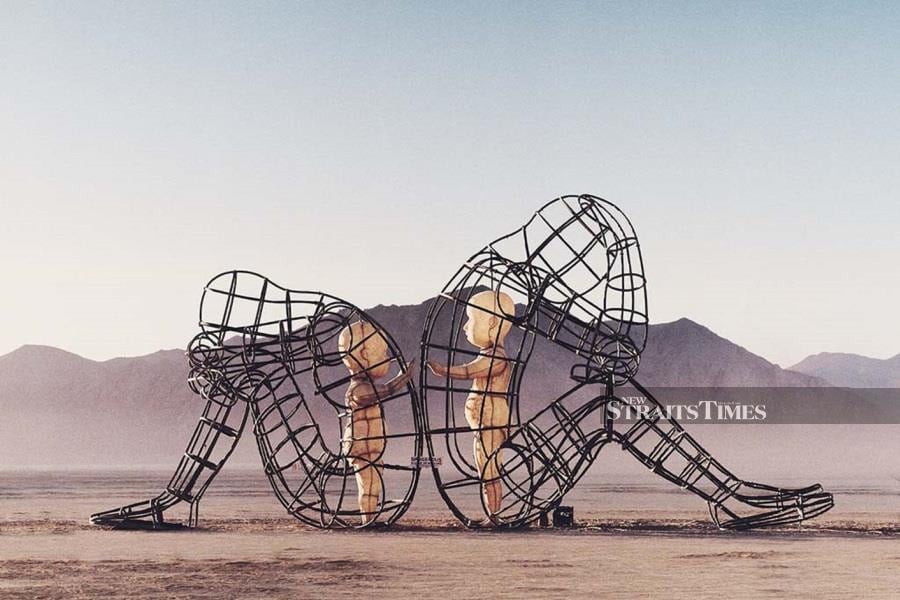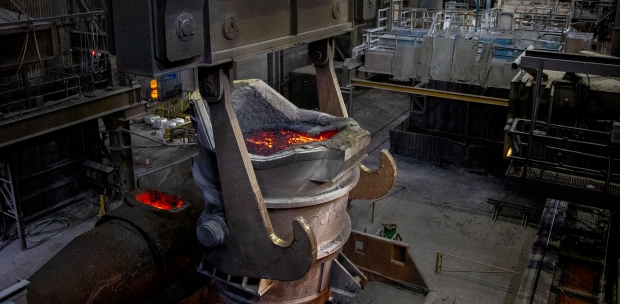WHEN was the last time a person close to you caused you to lose your temper? How did you react to him/her? When we get angry with people, we say and do things that we later regret. While fuming and feeling enraged, we distance ourselves from our partner, parents, children, friends and colleagues. Yet deep down, what we really want is to connect with them.
This was the theme that inspired Alexander Milov to sculpt a piece for the 2015 Burning Man Festival. According to Wikipedia, he constructed the sculpture using metal, mesh, plaster and lighting. It's 18 metres long, 5.5 metres wide and 7.3 metres high. Yes, it's huge.
The design features two large wire-framed human figures (man and woman) sitting back-to-back. Inside each of the human figure is a figure of a child trying to reach the other child through the wires.
At night, the two children inside the figures light up. The two adult wire figures are slumped and both appear to be sad. The dichotomy is represented by the two inner children who face each other, reaching out and attempting to connect.
DESIRE TO CONNECT
According to the artist, the sculpture represents the conflict between man and woman; the children meanwhile (who glow at night), represent the purity and sincerity which gives them a chance to make up when dark times arrive.
Aptly titled Love, the sculpture perfectly captures that. It was called a "scene of conflict with hope and innocence rising from within". As adults, age has taught us much. But what we cannot let go of are ego, grudges and hatred. But the "Inner Child" inside all of us simply wants to connect.
"Conflict is inevitable, combat is optional," said famous United States author Max Lucado. It's still applicable for all conflict situations we can think of. Conflicts are part of any relationship, whether personal or professional.
Our job isn't to avoid conflict, but to better understand the factors that contribute to it.
If done properly, we will be in a better position to intervene earlier and put in place more effective intervention strategies.
CHOOSE TO BE HAPPY
One such strategy is to let our inner child take over. If you are like most people, you'd likely have a wonderful and memorable childhood. Children are typically curious and innocent. They look at the world in a positive way. They have many things to do in any given time. Most importantly, they have no time to be unhappy.
Let's choose to be happy too. You can choose to respond, not react. It'll determine whether the outcomes of conflict are constructive or destructive. We have the option to avoid combat. We have the power to control our next course of action.
We can choose to be assertive instead of aggressive when confronted with conflict. At the end of the day, just let our "inner child" take over because he/she simply wants to connect. Let's be humble, forgive and love like little children would.
Zaid Mohamad coaches and trains others to bring out their best while enjoying a peaceful, purposeful life. Reach him at [email protected].





